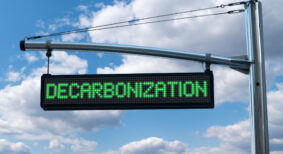A snub from a residential real estate specialist underscores the prevailing view that Toronto fails the location, location, location test for hosting Amazon’s second headquarters. Punditry emanating from the United States characterizes Toronto as an outlier on the short list or overlooks it entirely.
For example, the respected think tank, the Brookings Institute, cites “data incongruence” for leaving Toronto — frequently recognized as one of the world’s most multicultural cities — out of an effort to rank the diversity and social inclusiveness of the 19 other Amazon HQ2 contenders. Realtor.com offers no explanation for Toronto’s absence from its comparison of housing markets in the short-listed cities.
Recent data-driven analysis from the research and advisory firm, Resonance, affirms that Toronto is akin to a fabulous house on the wrong street. It ranks as the second-best match to the criteria Amazon set out in its initial request for proposals from bidding cities, but the economic development consultants conclude the more favourable U.S. tax regime will knock a Canadian city out of the running.
Resonance president and chief executive officer Chris Fair predicts New York — the only city to surpass Toronto’s performance — will also be passed over. Its deemed Achilles heel is the challenge of a securing adequate land to accommodate a vast campus in its densely developed real estate market. (While Toronto’s bid identified 10 potential development sites, New York’s listed available office space spread across four boroughs of the city.)
“That leaves Chicago, Northern Virginia, Los Angeles and perhaps Boston as the most likely candidates,” Fair surmises.
Resonance rankings of the 20 short-listed cities were derived through analysis of six criteria:
- Talent: Educational attainment in the population and the ranking of institutions of higher education
- Cultural Community Fit: Diversity measured by the percentage of population foreign-born and percentage that speak a language other than English at home
- Quality of Life: Crime rate, average time to commute to work, and the quality of neighbourhoods and landmarks
- Housing Affordability: Affordability of housing relative to the median household income
- Recreational Opportunities: Access to quality parks and outdoor activities
- Stable and Business-friendly Environment: The number of Fortune 500 companies
Resonance analysts also considered the depth of the local talent pool given Amazon’s stated objective to fill as many as 50,000 positions at the new headquarters. Toronto easily met the benchmark of at least 150,000 advanced industry workers.
Other assessments have been less flattering. The investment and financial news site, InvestorPlace.com, named Toronto at the top of its list of the seven cities that don’t stand a chance of hosting the new headquarters, citing lack of tax incentives and the cost of housing as two significant barriers. Projections from Business Insider rank it as the 17th most likely choice, ahead of only Columbus, Indianapolis and Los Angeles.
A recent CNBC ranking assigns Toronto a B− grade — on par with New York and Chicago — and placed Austin and Dallas at the top of the scale, both with grades of A−.
“While there are concerns up north that U.S. tax reform has wiped out Canada’s competitive advantage, the economics of a Toronto headquarters are hard to ignore. The city also has a strong, well-educated workforce, though it is heavily unionized, and inclusiveness is enshrined in federal law,” says Scott Cohn, the CNBC special correspondent who also produces the annual America’s Top States for Business report. “There are issues, however. Business regulation is sometimes harsh, the economy is sluggish and infrastructure needs work. And one can only imagine the presidential tweets over such a move.”
In harmony with Resonance’s findings, Boston and Northern Virginia make CNBC’s list of strong contenders. So, too, do Atlanta, Denver, Miami and Nashville.
Cohn acknowledges that none of these speculative exercises are privy to Amazon’s decision making process and/or the weights that will given to various criteria. Nevertheless, commentators’ attempts to parse and rank Amazon HQ2 contenders could be catching the attention of prospective investors, convention planners and tourists.
“Regardless of where Amazon chooses to go, one key takeaway from this whole exercise is the growing importance that quality of place plays in luring new companies, large or small, to cities today. Many of the factors identified by Amazon in its RFP are the very same factors we’ve identified as having a high correlation with both attracting international visitors and investment,” Fair notes.
Beyond the shortlist, it’s generally believed that the bid process has helped a handful of other North American cities secure recent investment commitments from Amazon. This includes: a 1 million-square-foot warehouse and distribution centre now under construction in Ottawa; a 450,000-square-foot fulfillment centre in Delta, B.C.; and an expansion of its Vancouver tech hub.







Toronto has the advantage of a federal immigration policy that would allow Amazon to hire the best-in-class from anywhere in the world. Not one of the other 19 contenders can make this claim.